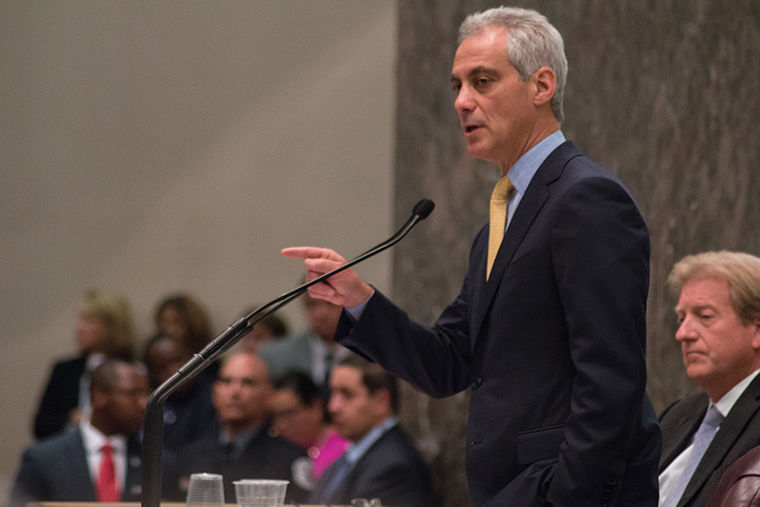City Council gives green light to COPA
City Council gives green light to COPA
October 10, 2016
Despite public criticism, a vote of 39-8 allowed Mayor Rahm Emanuel to move forward with replacing the Independent Police Review Authority with the Civilian Office of Police Accountability at City Council’s Oct. 5 meeting.
While the ordinance has been revised, the mission of COPA remains the same: to perform fair, transparent and timely investigations of alleged police misconduct, as stated in the ordinance.
“Today, [we have taken] a significant step on improving on what we have had,” Emanuel said.
The ordinance also established a new Public Safety Deputy, who will be appointed by the mayor-appointed inspector general and conduct reviews and audits of CPD, COPA and the Chicago Police Board and make recommendations, according to the ordinance.
While many people see the ordinance as a step toward greater police accountability, COPA already has critics, some of whom attended the meeting.
Marla Bramble, the director of organizing for the Jewish Council of Urban Affairs, a social justice advocacy organization in Chicago, said her group attended City Council’s meeting to urge aldermen to vote no on the ordinance.
“We think [COPA] is a step in the right direction, but there are pieces missing,” Bramble said. “Specifically, civilian oversight; civilian is in the name of the ordinance but not part of the language.”
Father Larry Dowling, a member of the Community Renewal Society and pastor of St. Agatha Catholic Church in North Lawndale, called the ordinance a “sham.”
Dowling said he and his organization, which trains individuals and communities to advocate for social and economic justice in Chicago, have been pressing Emanuel for police accountability for more than two years and have yet to see results.
“All [Emanuel] wants to do is control and doesn’t really want to solve problems,” Dowling said.
A common criticism of the ordinance is the appointment of COPA’s chief administrator. The current mayor-appointed head of IPRA Sharon Fairley will be appointed as chief administrator of COPA for a 4-year term and can be considered for reappointment after her term is complete. Future appointments have not been established, according to the ordinance.
Alderman Leslie Hairston (5th Ward), who voted against the ordinance, said the mayor having the authority to hire, fire and supervise the new unit’s chief is a problem.
“You can’t have community oversight if the mayor still remains in control of the agency in charge of investigating police,” Hairston said.
Dowling said the postponed development of a citizen oversight board, which will appoint future chief administrators for COPA, could create problems and delays and a need for refinements.
“It would be way too easy to say, ‘This is fine, we don’t need to go any further with this,”’ Dowling said.
The chief administrator of COPA cannot be a current or former sworn employee of CPD, or a nonsworn CPD employee of the Cook County State’s Attorney’s Office within the last five years, according to the ordinance.
Another criticism of the ordinance is that the budget is only one percent of CPD’s total budget, which Dowling said is insufficient.
Hairston said true independence requires money and agreed COPA’s budget is not enough.
“We can’t expect this new agency to do more work with inadequate funding,” Hairston said.
Currently, the U.S. Department of Justice is investigating CPD. An argument for putting this ordinance on hold until the completion of that investigation, Alderman Walter Burnett (27th Ward), acknowledged that the ordinance is not perfect but argued action is needed now.
“We need to put this in place, and then incorporate better ideas as we move on,” Burnett said.
At City Council’s meeting, Emanuel said the ordinance is a “significant step” toward improving police accountability, and promised there would be upgrades in the future.
“No, our work is not done. This is a process,” Emanuel said.
Some aldermen, however, are still not convinced the ordinance goes far enough and that this is another instance of Chicago failing to move forward.
“Obviously, Chicago is not ready for reform,” Hairston said. “Sadly, we prove it time and time again.”








